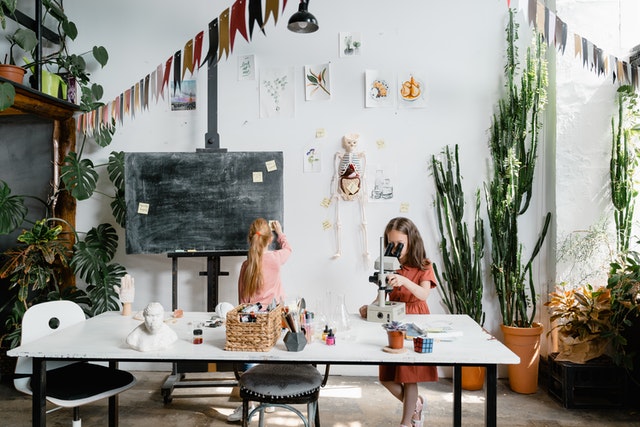When it comes to sharing knowledge about science, some parents might prefer to hide under the bed and avoid listening to any lectures by their kids’ teachers. Others might be more adventurous and sit up front in the class and ask intelligent, probing questions.
Parents should not let their personal beliefs about what is or isn’t scientific get in helping their children learn about science. Allowing them to explore things on their own is one of the best ways for children to learn new things.
With all that education out there, it can be challenging for parents to know where to begin when it comes to teaching our kids about science. The good news is that there are many great tips out there that you can use as a reference point when trying to educate your child on something new.
Let’s look at five tips to help parents guide their kids into loving learning about science.
1. Measure Their Masterworks
One of the best ways for parents to help their kids learn about science is to have them participate in scientific experiments. This can be done by having them measure the height, weight, and other physical properties of objects they have made using materials they have collected from around the house.
This type of hands-on learning can help children appreciate science and math as they learn how to use these measurements to analyze data. This can be anything from the height of a tree to an apple’s volume. It’s essential to get your children involved in scientific measurement early on to develop a love for it.
2. Support Further Exploration
Encouraging your children to keep exploring science topics beyond what they are currently learning is one of the best things you can do for them. This will help them develop a greater understanding of the world around them and enhance their ability to think critically.
Please help your child find scientific journals and magazines that cover different areas of science, and let them read articles that interest them. This will help create a curiosity about science in your child and encourage them to keep learning more about the subject.
3. Encourage Creative Thinking
When it comes to learning about science, one of the best ways to get kids started is by encouraging them to think outside the box. By letting them explore things on their own, they will be able to develop their ideas and theories about what’s happening in the world around them.
This type of creativity is essential for kids when it comes to learning new things. When children are allowed to use their imagination and come up with their ideas, they are more likely to be interested in learning more about the topic. This can be done by providing them with materials to explore their creative side. This could include books, websites, and anything else that might help them explore their creativity.
4. Teach Them How To Ask Questions
Exploring human anatomy for kids is a great place to start when it comes to teaching science. By exploring the different organs and body parts, children will be able to ask questions and get their curiosity sparked. Try to have fun with the lesson by engaging your child in conversation and making it a fun experience.
Children need to be able to ask questions about the things they are learning. This will help them learn how to think critically, and problem solve. When it comes to science, having questions beyond the teacher’s explanation is an excellent way for kids to show their engagement in the class.
5. Encourage Children to Record Their Observations
This can be done in various ways, such as taking notes during class, writing down questions that you and your child have about what was being taught, or even taking pictures or video footage of what is happening in the classroom. This is an excellent way for kids to document what they’ve learned and share their findings with other people.
Wrapping Up
By implementing these tips into your child’s science education, you can help them to learn and retain information more effectively. By getting them involved in the learning process, they will be more interested in the material and be more likely to remember it. Additionally, by encouraging creativity and questioning what they are learning, your child will become a better scientist in the future.


